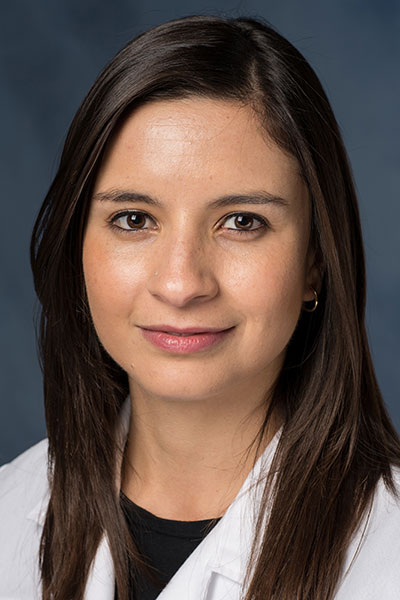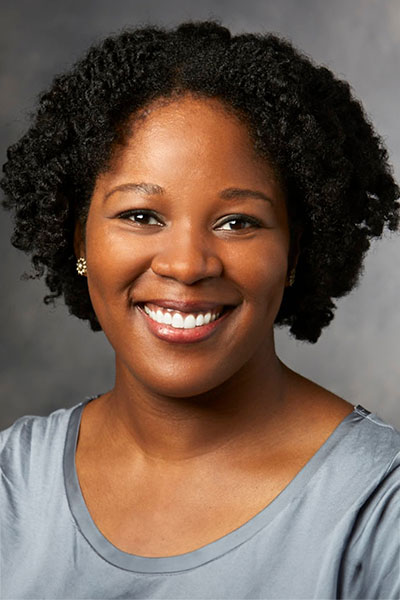Pulmonary function tests (PFTs) play a critical role in diagnosing respiratory diseases and measuring patients’ progress during treatment. Pediatric pulmonologists may face unique challenges in accurately measuring or interpreting results, particularly with younger children who may have difficulty following directions.

The Pediatric Clinical Core Curriculum at the ATS 2025 International Conference is a three-part series designed to address timely care considerations using the latest clinical guidelines and investigative data. The theme of this year’s curriculum is a review of current and emerging pediatric pulmonary testing methods. The first two sessions will be hosted from noon to 1 p.m. PT, Sunday, May 18, and Monday, May 19. All three sessions will be held in the Moscone Center, Room 215-216 (South Building, Level 2).
“This year, we distributed a survey to more than 30 members among ATS leadership groups asking what they would like to hear about during the program, and we definitely noticed a consistent pattern from respondents asking about testing in pediatric pulmonology,” said Carmen Leon Astudillo, MD, clinical assistant professor at the University of Florida and vice chair of this year’s pediatric core curriculum. “There have been a lot of advances in technology and new techniques being developed, making their way into the pediatric field, so we wanted to make sure that clinicians and researchers were aware of what’s available to them.”
The opening session will begin with a high-level overview of recent updates in PFTs. The presentation will explore techniques beyond spirometry that attendees may be unfamiliar with to provide a comprehensive picture of the current testing landscape. Caroline Okorie, MD, MPH, clinical associate professor at Stanford University and chair of the pediatric core curriculum, also noted that the relatively recent shift away from traditional PFTs that use race and ethnicity to interpret results would be a key discussion point.
“I think people have started to move towards the idea of race-neutral global algorithms for PFTs, so we wanted to discuss the implications of that because the outputs for certain patients are changing,” Dr. Okorie explained. “For instance, we’re finding things that were considered normal under the old model, but when we use the updated algorithms, they show abnormal results.”

The second half of Sunday’s session will cover how to help patients with actionable exercise test results. Pediatric pulmonology specialists will gain insights into identifying patients who could benefit from these tests and the optimal settings for performing them.
“This is an area where trainees at many centers don’t receive a lot of preparation,” Dr. Leon Astudillo said. “However, it is very useful, and there has been a lot of progress in the field in terms of applications, differential diagnoses, response to interventions, and there is a large quantity of data that can be collected for clinical and research purposes.”
Monday’s Pediatric Clinical Core Curriculum session will investigate cutting-edge techniques and technologies in modern imaging tests and diagnostic flexible bronchoscopies.
A common concern related to modern imaging techniques is radiation exposure from computed tomography (CT) tests, particularly because many pediatric patients require multiple imaging tests to monitor and manage their condition. Participants will learn about updates that can reduce exposure in addition to alternative testing techniques, such as ultrasound or magnetic resonance imaging (MRI). The presentation will also delve into applications of artificial intelligence for pediatric chest imaging.
The day’s final discussion will explore recent progressions in techniques for flexible bronchoscopy and interventional pulmonology, including ultrasound modalities and multiple applications of cryotherapy.
“Interventional pulmonology is well established with adult patients, but it’s becoming a growing ‘sub-sub-specialty’ on the pediatric side, so I think our audience will enjoy hearing about these applications for our younger patients,” Dr. Okorie said.
The final Pediatric Clinical Core Curriculum session will be held from 9:30 to 10:30 a.m. on Wednesday, May 21.
The goal of the core curriculum is to support clinicians engaged in maintenance of certification (MOC) activities by providing updates on subjects included in recertification requirements. The ATS Clinical Core Curriculum Symposia focuses on key topics in adult and pediatric pulmonary, critical care, and sleep medicine. The topics are aligned with the corresponding MOC Medical Knowledge modules. This symposium is intended to help clinicians stay up to date with important information relevant to their medical practices and to provide an opportunity for clinicians to evaluate their knowledge and skills while earning MOC Medical Knowledge points.
Extend Your Learning Beyond San Francisco with ATS 2025 Conference Highlights

With so many valuable educational opportunities offered during the ATS 2025 International Conference, attendees are often forced to decide which sessions to prioritize. That’s why the Society is offering three ATS 2025 Conference Highlights packages for those unable to attend ATS 2025 San Francisco or attendees interested in continuing their education after the conference. Check out the packages and pick the one that’s right for you. Learn at your own pace, whenever and wherever you are!

